| Listing 1 - 10 of 17 | << page >> |
Sort by
|
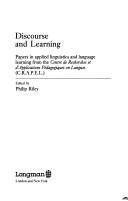
ISBN: 0582553741 9780582553743 Year: 1989 Publisher: London Longman
Abstract | Keywords | Export | Availability | Bookmark
 Loading...
Loading...Choose an application
- Reference Manager
- EndNote
- RefWorks (Direct export to RefWorks)
Language and languages --- -Foreign languages --- Languages --- Study and teaching --- Foreign language study --- Language and education --- Language schools --- Langage et langues --- Etude et enseignement --- Language and languages Study and teaching
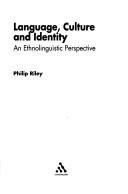
ISBN: 1282309501 9786612309502 1441168788 9781441168788 9780826486288 0826486282 9780826486295 0826486290 9781282309500 6612309504 Year: 2007 Publisher: London New York Continuum
Abstract | Keywords | Export | Availability | Bookmark
 Loading...
Loading...Choose an application
- Reference Manager
- EndNote
- RefWorks (Direct export to RefWorks)
How language shapes and is shaped by identity is a key topic within sociolinguistics. An individual's identity is constituted through a variety of different factors, including the social, linguistic, cultural and ethnic contexts. In this book, Philip Riley looks at these issues against the theoretical background of the sociology of knowledge, and ethnolinguistics, asking how we learn who we are and how social identities are negotiated. The idea of 'the foreigner' is central to this account, yet traditional views of the role of being socially 'other' largely neglect the role of language. Riley
Language and culture. --- Ethnicity. --- Ethnic identity --- Group identity --- Cultural fusion --- Multiculturalism --- Cultural pluralism --- Culture and language --- Culture --- Ethnicity --- Language and culture --- Antropologische linguïstiek. --- Etnolinguïstiek. --- Linguïstische antropologie. --- Taal en culturele identiteit. --- Ethnic relations --- Langage et culture --- Relations interethniques --- Sociological aspects --- Sociolinguistics
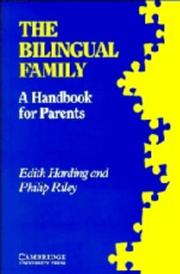
ISBN: 0521311942 9780521311946 Year: 1987 Publisher: Cambridge Cambridge University press
Abstract | Keywords | Export | Availability | Bookmark
 Loading...
Loading...Choose an application
- Reference Manager
- EndNote
- RefWorks (Direct export to RefWorks)
Bilingualism in children --- Parenting --- Children --- Language --- Parent behavior --- Parental behavior in humans --- Child rearing --- Parent and child --- Parenthood --- Language development in children --- Interpersonal communication in children --- Language and languages --- Vocabulary --- Children - Language
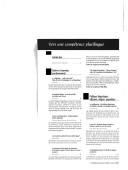
ISBN: 2090371056 9782090371055 Year: 2003 Publisher: Paris Clé international
Abstract | Keywords | Export | Availability | Bookmark
 Loading...
Loading...Choose an application
- Reference Manager
- EndNote
- RefWorks (Direct export to RefWorks)
French language --- grammatica --- Frans
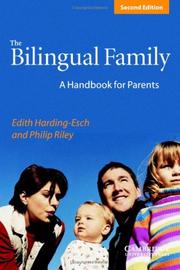
ISBN: 9780521808620 9780511667213 9780521004640 Year: 2003 Publisher: Cambridge Cambridge University Press
Abstract | Keywords | Export | Availability | Bookmark
 Loading...
Loading...Choose an application
- Reference Manager
- EndNote
- RefWorks (Direct export to RefWorks)
#KVHA:Taalkunde --- #KVHA:Taalverwerving --- #KVHA:Tweetaligheid
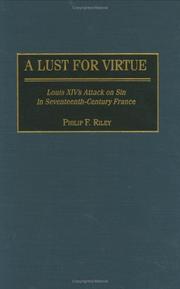
ISBN: 0313317089 0313001065 9780313001062 9798400680984 Year: 2001 Publisher: Westport, Conn. Greenwood Press
Abstract | Keywords | Export | Availability | Bookmark
 Loading...
Loading...Choose an application
- Reference Manager
- EndNote
- RefWorks (Direct export to RefWorks)
Church and state --- Counter-Reformation --- Sin --- Theological anthropology --- Transgression (Ethics) --- Anti-Reformation --- Church history --- Church renewal --- Reformation --- Christianity and state --- Separation of church and state --- State and church --- State, The --- History --- Christianity --- History of doctrines --- Louis --- Lodewijk --- le Roi-Soleil --- Louis le Grand --- de Zonnekoning --- Religion. --- France --- Bro-C'hall --- Fa-kuo --- Fa-lan-hsi --- Faguo --- Falanxi --- Falanxi Gongheguo --- Faransā --- Farānsah --- França --- Francia (Republic) --- Francija --- Francja --- Francland --- Francuska --- Franis --- Franḳraykh --- Frankreich --- Frankrig --- Frankrijk --- Frankrike --- Frankryk --- Fransa --- Fransa Respublikası --- Franse --- Franse Republiek --- Frant︠s︡ --- Frant︠s︡ Uls --- Frant︠s︡ii︠a︡ --- Frantsuzskai︠a︡ Rėspublika --- Frantsyi︠a︡ --- Franza --- French Republic --- Frencisc Cynewīse --- Frenska republika --- Furansu --- Furansu Kyōwakoku --- Gallia --- Gallia (Republic) --- Gallikē Dēmokratia --- Hyãsia --- Parancis --- Peurancih --- Phransiya --- Pransiya --- Pransya --- Prantsusmaa --- Pʻŭrangsŭ --- Ranska --- República Francesa --- Republica Franzesa --- Republika Francuska --- Republiḳah ha-Tsarfatit --- Republikang Pranses --- République française --- Tsarfat --- Tsorfat --- Γαλλική Δημοκρατία --- Γαλλία --- Франц --- Франц Улс --- Французская Рэспубліка --- Францыя --- Франция --- Френска република --- פראנקרייך --- צרפת --- רפובליקה הצרפתית --- فرانسه --- فرنسا --- フランス --- フランス共和国 --- 法国 --- 法蘭西 --- 法蘭西共和國 --- 프랑스 --- France (Provisional government, 1944-1946) --- Moral conditions

ISBN: 0511667213 0521808626 0521004640 Year: 2003 Publisher: Cambridge : Cambridge University Press,
Abstract | Keywords | Export | Availability | Bookmark
 Loading...
Loading...Choose an application
- Reference Manager
- EndNote
- RefWorks (Direct export to RefWorks)
First published in 1986, The Bilingual Family has provided thousands of parents with the information and advice they need to make informed decisions about what language policy to adopt with their children. This second edition contains updated references and new entries to the alphabetical reference guide.
Languages & Literatures --- Philology & Linguistics --- Bilingualism in children. --- Bilingualism. --- Language and languages --- Languages in contact --- Multilingualism --- Children

ISBN: 0521324181 Year: 1986 Publisher: Cambridge Cambridge University Press
Abstract | Keywords | Export | Availability | Bookmark
 Loading...
Loading...Choose an application
- Reference Manager
- EndNote
- RefWorks (Direct export to RefWorks)
Book
Abstract | Keywords | Export | Availability | Bookmark
 Loading...
Loading...Choose an application
- Reference Manager
- EndNote
- RefWorks (Direct export to RefWorks)
Academic writing --- Communication, International --- English language --- Technical writing --- Rhetoric --- Study and teaching --- Foreign speakers --- Technical English --- Variation
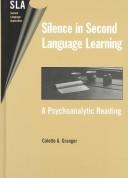
ISBN: 1853596973 1853596981 185359699X 1280828307 9786610828302 1788920406 9781853596995 9781853596971 9781853596988 Year: 2004 Volume: 6 Publisher: Bristol Blue Ridge Summit
Abstract | Keywords | Export | Availability | Bookmark
 Loading...
Loading...Choose an application
- Reference Manager
- EndNote
- RefWorks (Direct export to RefWorks)
Within the complex process of second language acquisition there lies a highly variable component referred to as the silent period, during which some beginning second language learners may not willingly produce the target language. Silence in Second Language Learning claims that the silent period might represent a psychical event, a non-linguistic as well as a linguistic moment in the continuous process of identity formation and re-formation. Colette Granger calls on psychoanalytic concepts of anxiety, ambivalence, conflict and loss, and on language learning narratives, to undertake a theoretical dialogue with the learner as a being engaged in the psychical work of making, and re-making, an identity. Viewed in its entirety, this study takes the form of a kind of triangulation of three elements: the linguistically described phenomenon of the silent period; the psychoanalytically oriented problem of the making of the self; and the real and remembered experiences of individuals who live in the silent space between languages.
Second language acquisition --- Silence --- Psychoanalysis --- Psychoanalysis. --- Psychoanalytic Theory. --- Second language acquisition. --- Silence. --- Languages & Literatures --- Philology & Linguistics --- Second language learning --- Psychology --- Psychology, Pathological --- Noise --- Language acquisition --- L2 self. --- SLA. --- Second Language Acquisition. --- foreign language learning. --- second language learning. --- silence. --- silent period.
| Listing 1 - 10 of 17 | << page >> |
Sort by
|

 Search
Search Feedback
Feedback About UniCat
About UniCat  Help
Help News
News